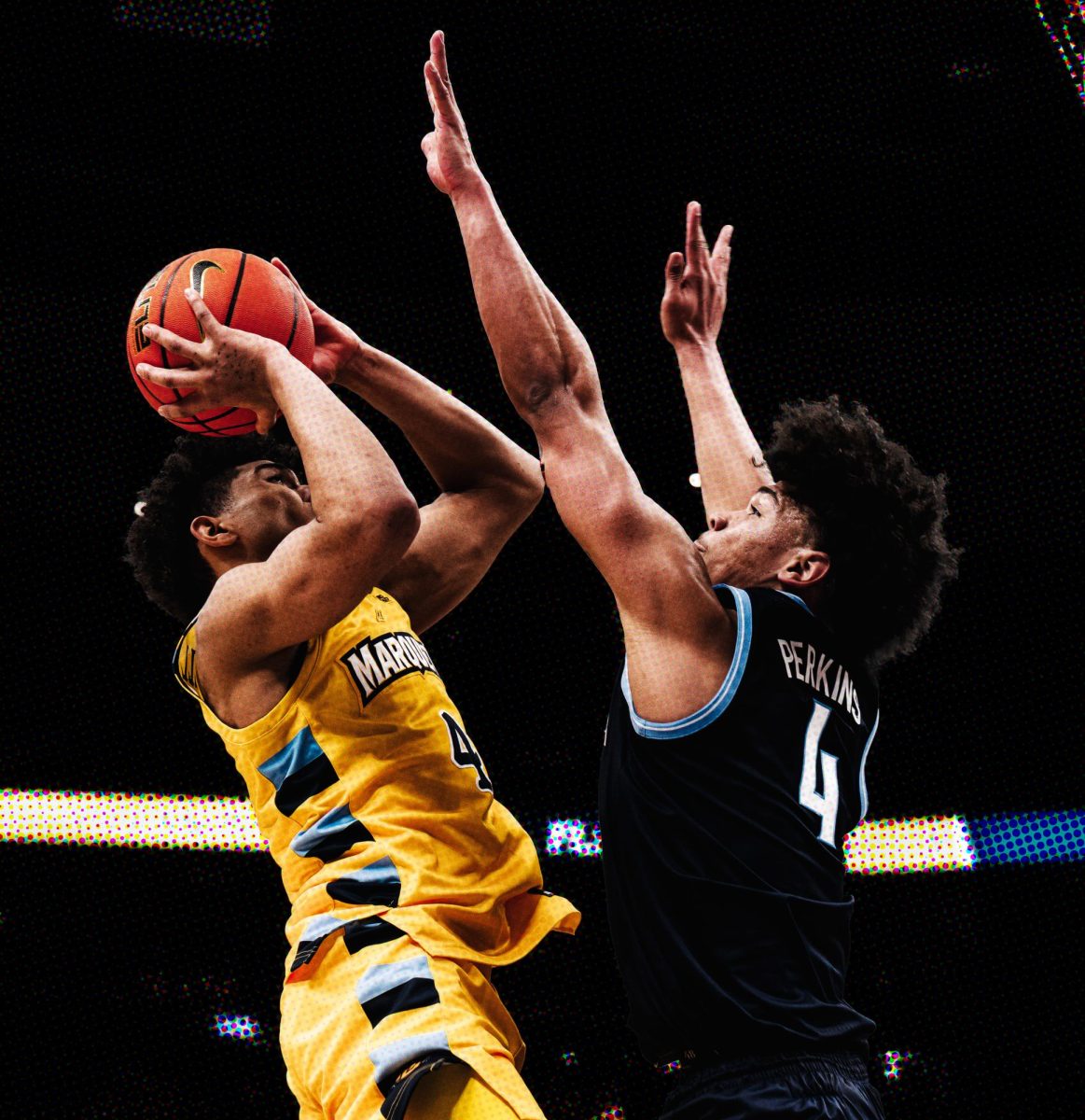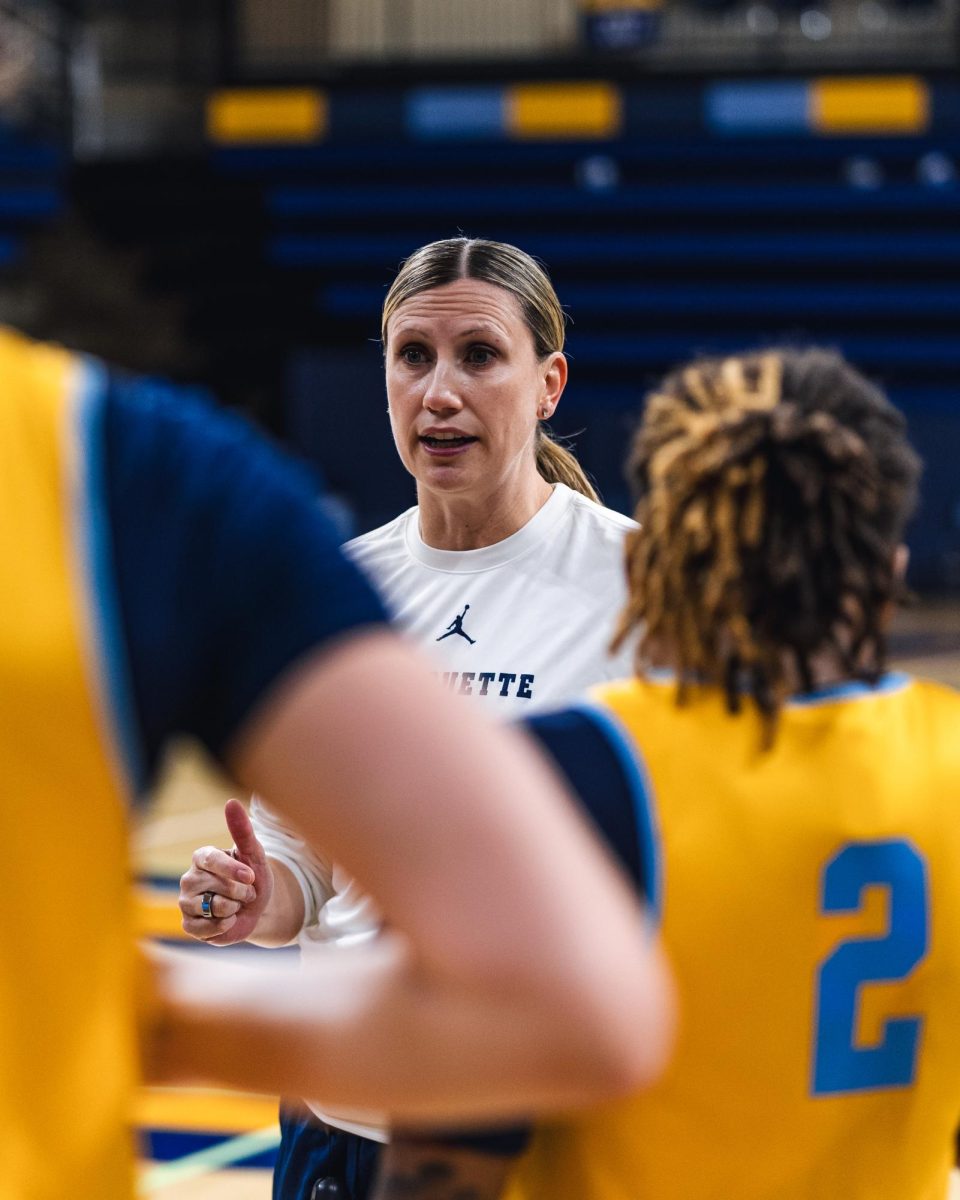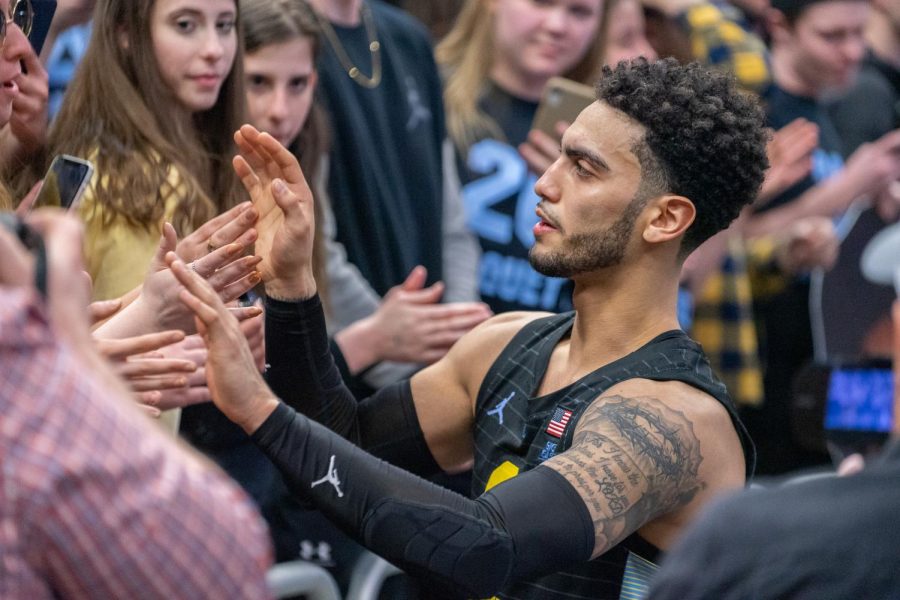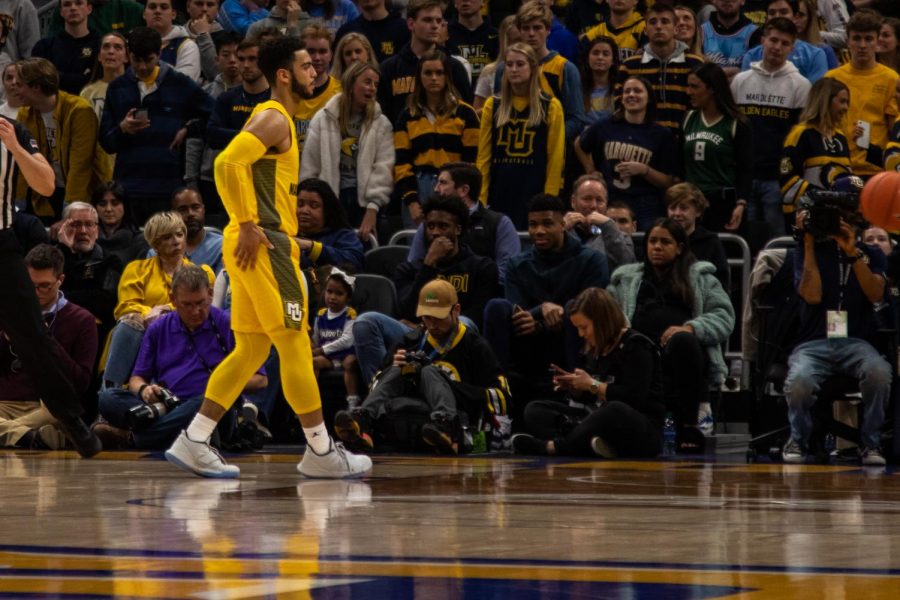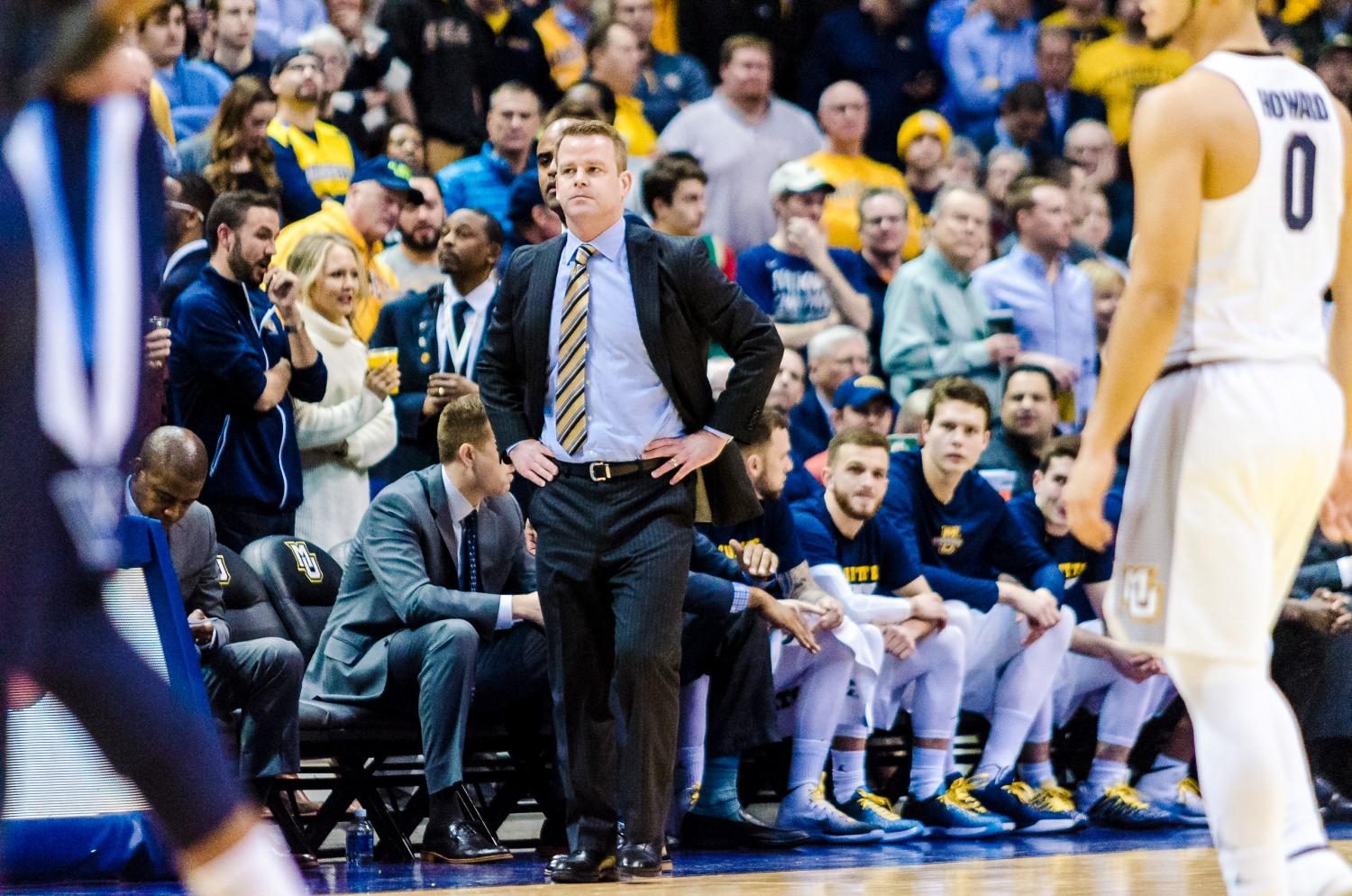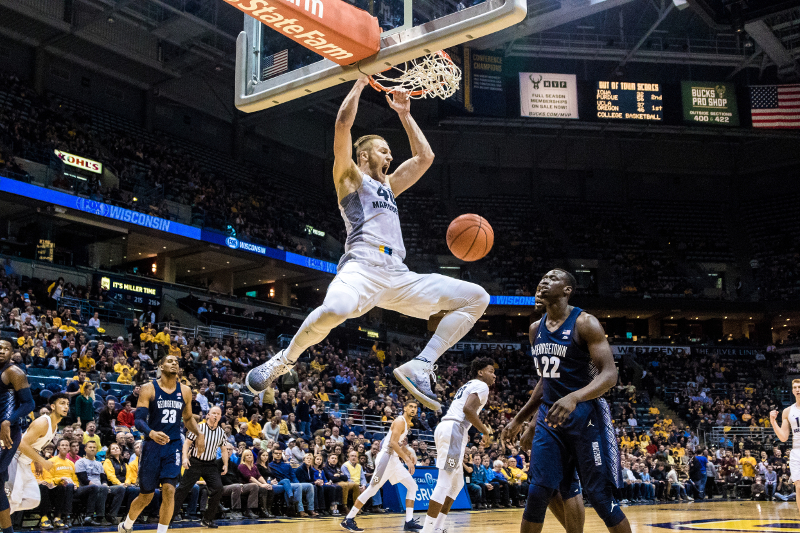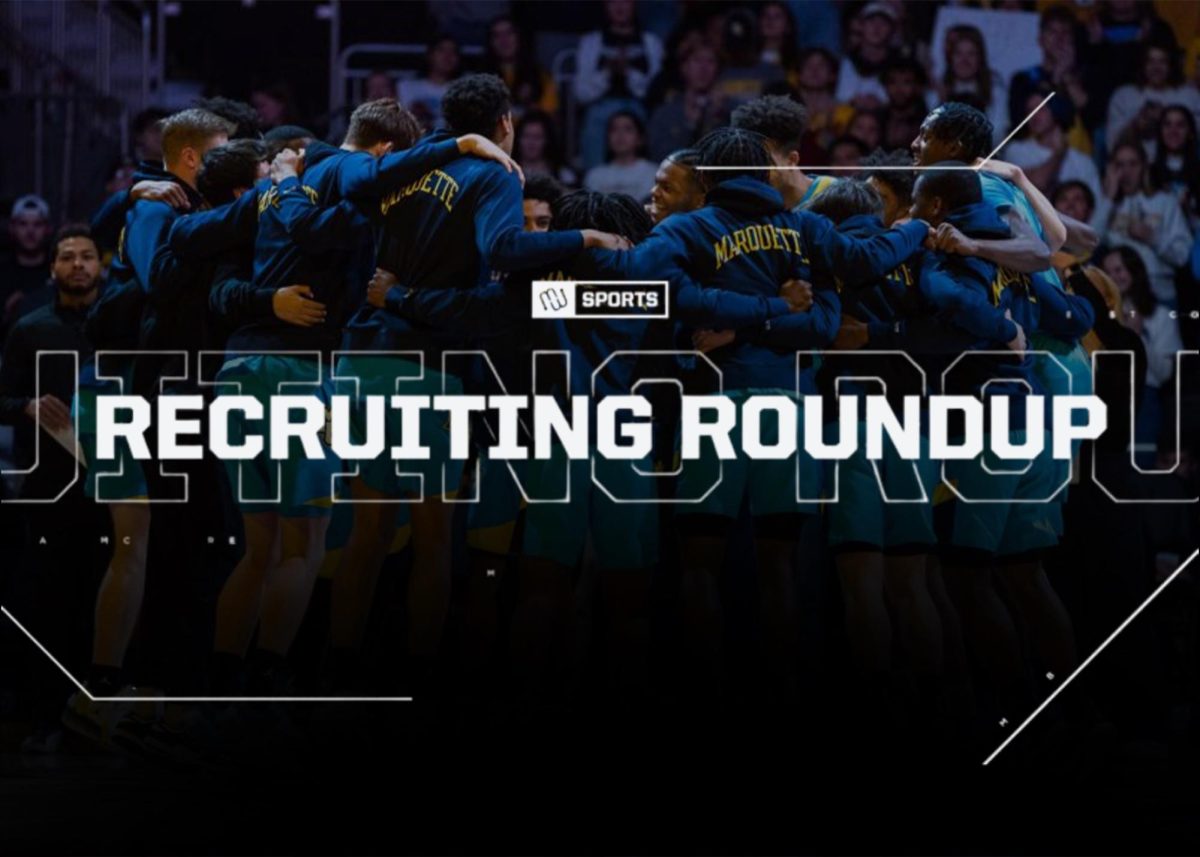Phillip Flory has yet to play a regular season high school basketball game for Wisconsin Rapids, but on Saturday he immediately accepted Marquette coach Buzz Williams’ scholarship offer for the 2017 season.
The 15-year-old guard, son of former Marquette standout Michael Flory, became the youngest recruit Williams has ever secured via verbal commitment.
“I’m an organized person and now I know what I’m going to be doing four years from now,” Phillip told the Milwaukee Journal Sentinel.
Michael told the Journal Sentinel that Marquette was the only school to extend an offer at the time, though Indiana started showing interest.
It’s hardly the most shocking move by a coach this year in regard to signing young talent.
Alabama football coach Nick Saban extended a scholarship to eighth-grade phenom Dylan Moses back in February. Also, Fourteen-year-old basketball player Marvin Bagley III, is receiving from Arizona State, San Francisco and Creighton after completing the seventh grade last spring.
Next to these cases, Williams’ decision looks tame but raises a similar question.
When so much stock is put into expectations and potential, how does the presence of an agreement, albeit non-binding, play into a young athlete’s mental and emotional development?
According to Michael Flory, the decision will be beneficial.
“Now it’s over and Phillip can concentrate on being the best player he can be for Wisconsin Rapids in the next four years,” he told the Journal Sentinel.
The commitment could be a low-risk, high reward move for the Golden Eagles. While it gives Marquette a competitive edge in the recruitment race, there are no real penalties for either side should the commitment fall through. Other coaches, like Villanova’s Jay Wright, have dealt with similar instances before without much issue.
“It actually happened to us where a kid committed to us early,” Wright told ESPN in June. “By the time he was a senior, we both knew he hadn’t developed to the point where we thought he would. We both agreed on that, and he was able to go elsewhere.”
These cases have drawn some concern. The NCAA’s Recruiting and Athletics Personnel Issues Cabinet issued a proposal in July that would keep coaches in all NCAA sports from offering scholarships before July 1 between a recruit’s 11th and 12th grade years. The cabinet meets again in September, but the proposal will not officially be voted on until January.
As for the here and now, the move makes sense from Williams’ perspective. Coaches are under a lot of pressure to keep up in the changing scheme of college sports recruiting, and attempting to lock up younger talent has become an increasingly common practice.
If anything, the decision shows Williams’ devotion to the programs’ future development, no matter how distant that future may be.


